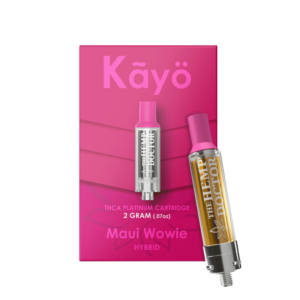The cannabis and broader cannabinoid markets have changed significantly over the last few years. Even companies operating in these spaces may be unable to keep up with all the laws and rule changes.
However, keeping up with cannabis laws is essential to operating at all in this American market. The next set of changes in drug policy may come with overhauls for how you do business, the stock you’re allowed to keep, and how you plan for the future.
This guide will help you catch up with some of the big hemp/marijuana policies that are affecting smoke shops, legal dispensaries, medical cannabis dispensaries and other parties grappling with a changing market. First, let’s start with the most important landmark hemp and cannabis laws of the last five years.
What Has Changed Recently About Legalization?
Several major changes in Marijuana legalization may play a role in the future of the business. The Farm Bill of 2018 created an entire hemp market, and cannabis legalization is accelerating. However, the DEA has also proven their willingness to use rule changes and law enforcement to keep the market inside the law.
(National) The 2018 Farm Bill Legalized Most Hemp Products Nationwide
The 2018 Farm Bill was the most consequential piece of national legislation for the hemp and cannabis industry. When passed by the house and senate, and signed into law, it effectively created a legal national framework for all non-THC ingredients that exist in hemp. The marijuana prohibition still stood, but it now focused only on THC.
A national CBD market sprouted immediately and became worth billions in less than a year. Growers, tenders, and labs began creating greater concentrations of some active ingredients and introduced marijuana alternatives from the hemp plant, such as Delta 8 and THCa.
Cannabis Legalized at the State Level By a Wave of States
One of the biggest stories in the industry in the last five years is just how much the legal situation has improved for cannabis and hemp. The following states legalized recreational cannabis in the last five years.
- Arizona
- California
- Connecticut
- Delaware
- Illinois
- Maryland
- Massachusetts
- Michigan
- Minnesota
- Missouri
- Montana
- Nevada
- New Jersey
- New Mexico
- New York
- Oregon
- Rhode Island
- Vermont
- Virginia
- Hawaii
- Washington D.C.
This is not a complete list; states like Colorado and Washington were some of the first states to legalize the use of marijuana far more than five years ago.
Lawmakers in any other unlisted states have passed laws that allow medicinal cannabis to be sold in medical marijuana dispensaries. Medical marijuana laws are often followed by changes in recreational use laws, but this is not always the case. Oklahoma has a robust medical system, but voted down a recreational one recently. More on the legality in all 50 states.
(National) Rule Changes Outlaw THC-O
One cannabinoid has been outlawed in the time that’s passed since the Farm Bill of 2018. Within the last year, the DEA officially declared that THC-O was a prohibited substance. This was based on their rationale that THC-O does not occur naturally in the hemp plant.
While this rule change disrupted a THC-O market, the rule was not predicted to have major implications for popular cannabinoids. For example, Delta-8 and Delta-9 naturally occur in the hemp plant.
What Is the Outlook for National Cannabis Legalization?
The rapid changes have caused many to speculate about what might be next for the cannabinoid market. Based on what’s happened so far, and some data that’s been collected, some reasonable predictions can be made about the future. Here are some of our predictions:
New Cannabinoids Will Continue to Hit The Market
In just the last few years since congress passed the legalization of hemp, a universe of new products have developed. CBD has been used for decades, but following legalization, it was available in more forms than ever before, including higher concentrations, isolates, waxes, and more.
Several active ingredients also emerged as their own products while staying on the right side of federal law. While these products are legal at the federal level, questions still remain about state jurisdiction.
Full Legalization Will Likely Spread to More States
State legislatures (and ballot options made possible by advocacy) have largely favored legalization or decriminalization over the last few years. We predict that this trend will continue.
One factor (beyond popularity) that is driving state-level legalization is the significant amount of tax revenue that it is generating for legal states. Recent analysis suggests that states have already made more than $15 billion. Any expansion of legalization helps those who sell hemp and legal cannabis expand their potential customers base.
Is National Legalization Possible?
While favorable changes in state laws are exciting, everyone is watching for the truly exciting development: national recreational marijuana legalization. The government is increasingly not enforcing its own laws against recreational cannabis use and may be pressured by states to pursue national legalization.
This could be done by either congress passing a law, or by the president removing THC from Schedule-I restricted drugs. If this happens, it will significantly ease the regulatory environment for all retailers, including those who sell hemp.
Start Building a Future in the Cannabis Industry
The cannabis and hemp markets are moving quickly. Now you know a little more about the cannabis laws and drug policies that have set the stage for the future. Most agree that the prospects are bright. Full national legalization could open new avenues for both hemp and cannabis products. One of the best ways to protect yourself against an uncertain future is by working with partners who stay informed. Our products are held to the highest standards, and we are among the first to carry the most exciting new formulations. Contact us now to find out how we can support you.







